Pick your phone up. Scroll through an app. Place an order. Thirty minutes later, a warm meal arrives at your doorstep—no effort or movement required on the part of the customer. But behind Korea’s convenient half-hour delivery times lies a harsh reality.
Food delivery drivers, more commonly referred to as “라이더들” (translated to riders), often face struggles in their line of work. Extreme weather, late work hours, declined pay, and customer condescension all play into an increase of protests against popular delivery apps.
Fourth-year veteran rider Hwang Byeong-su said, “Baemin and Coupang Eats, two of the largest platforms, have been decreasing their riders’ pay per delivery. That’s sort of disheartening because I need to make money to support my education. While fair compensation is a part of the issue, I’m most bothered by Baemin’s, one of the largest delivery platform’s, indifference to our struggles.”
More recently, riders began to protest against a new restriction: apartment accessibility. “There are many apartments in Suseong-gu which us delivery drivers call 천룡인 (cheong-lyong-in apartments)’ – condescending upper-class buildings. These apartments often prohibit riders from entering the complex through both the parking lot and ground floor, requiring us to leave our motorcycles at the main gate and walk to complete our delivery. This feels excessive and arrogant, especially since we are not compensated for the increased time and effort on our part,” Hwang said.
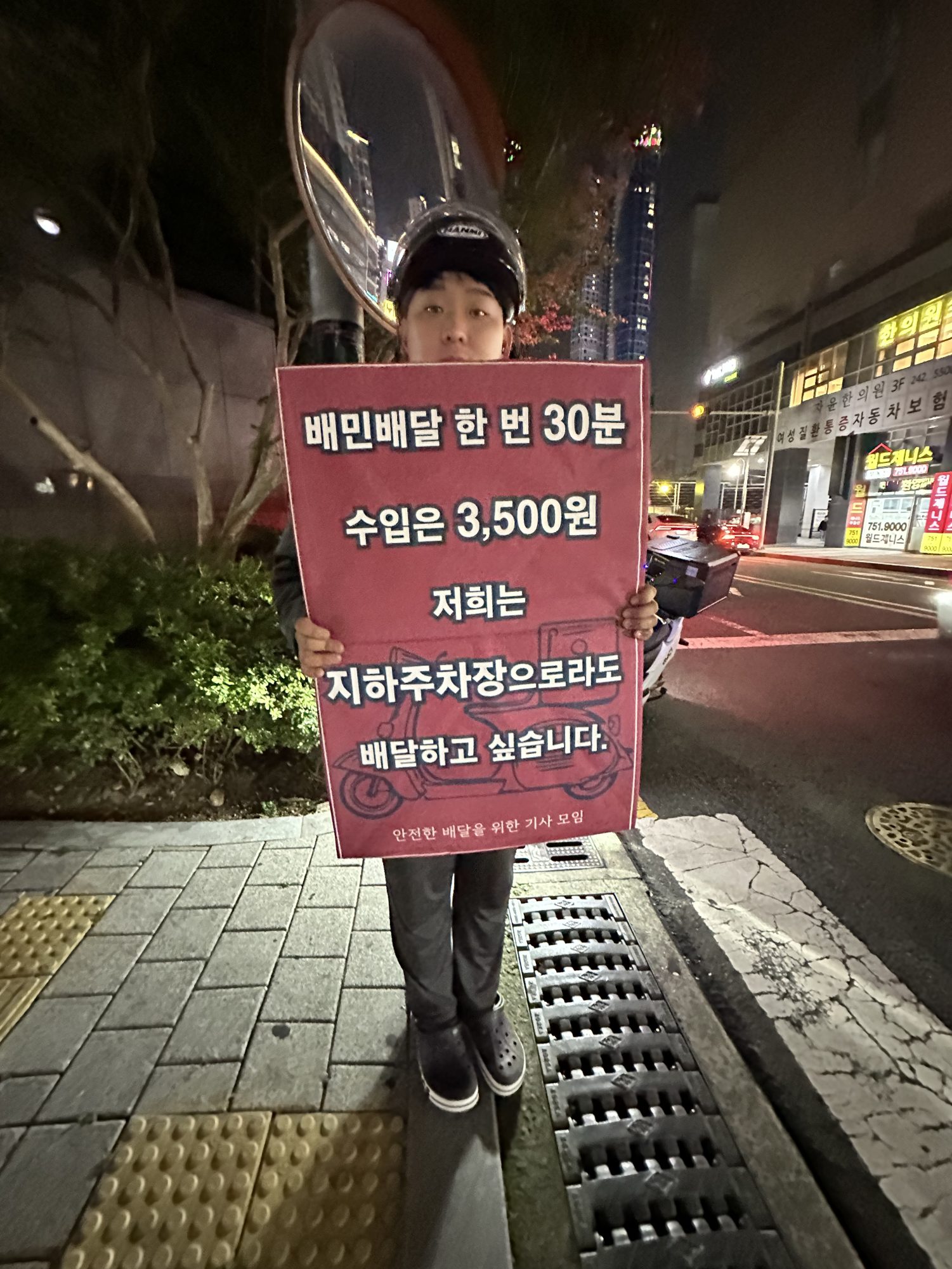
Although drivers choose individual jobs freely, factors like acceptance ratings and customer memberships often force their hands. “I often don’t accept requests to deliver to ‘cheong-lyong-in apartments’ because of the difficulty, but that decreases my acceptance rate for the apps, which affects my future requests. When customers are Baemin Plus or Coupang Eats Partner members, I don’t have a choice anyway – the companies accept the delivery on my behalf,” Hwang said.
From a different perspective, motorcycle access restrictions aren’t necessarily an issue of condescension but a solution to reckless driving, with 40% of delivery riders commonly speeding, ignoring traffic signals, and driving on pedestrian roads. Due to sporadic accidents, which sometimes involve young children or the elderly, apartment complexes must put their residents’ safety first.
Saftey reasons rise as major concerns among parents with children that hang around the apartment streets. “I think it’s super dangerous, especially for younger children, because motorcycle drivers often pretty much do and go wherever they want. I’ve noticed that they drive on all roads and streets – it doesn’t matter if there are people. They also don’t slow down for pedestrians. Personally, I’ve had to sometimes protect my own kids from getting run over because riders don’t stop even for kids,” Mrs. Jinsol Kim, English Language Usage teacher, said.
Meanwhile, “cheong-lyong-in apartment” security guards express their frustration at the riders’ misdirected annoyance. “From our point of view, it’s just a matter of apartment policy. Whether or not we let delivery drivers enter the complex with their motorcycles isn’t our individual decision. It’s something decided on during the resident meetings and apartment management, and it’s sometimes frustrating when riders complain to us. I’m just trying to keep my job,” Doosan We’ve the Zenith apartment security guard Jae Hyeon Park said.
Still, riders hope to see a change in stance in Cheong-lyong-in apartments. “I am protesting because I do have hopes that circumstances will change. While protesting alone is a small act, I believe it can still have a large impact. By informing residents and security guards about us riders’ struggles, I hope to inspire them to put themselves in our shoes and understand our struggles. There’s no single course of action that can solve all our problems, but I think rider struggles need to be talked about,” Hwang said.
While the widespread issue lacks a clear solution, all parties involved must strive for mutual understanding to balance safety, efficiency, and fairness in the meantime. As Korean delivery labor laws develop, awareness increases, and companies update their policies, positive change will surely soon come. But until then, what can the everyday person do? Just always also consider the people underneath the helmets – not simply your convenience.

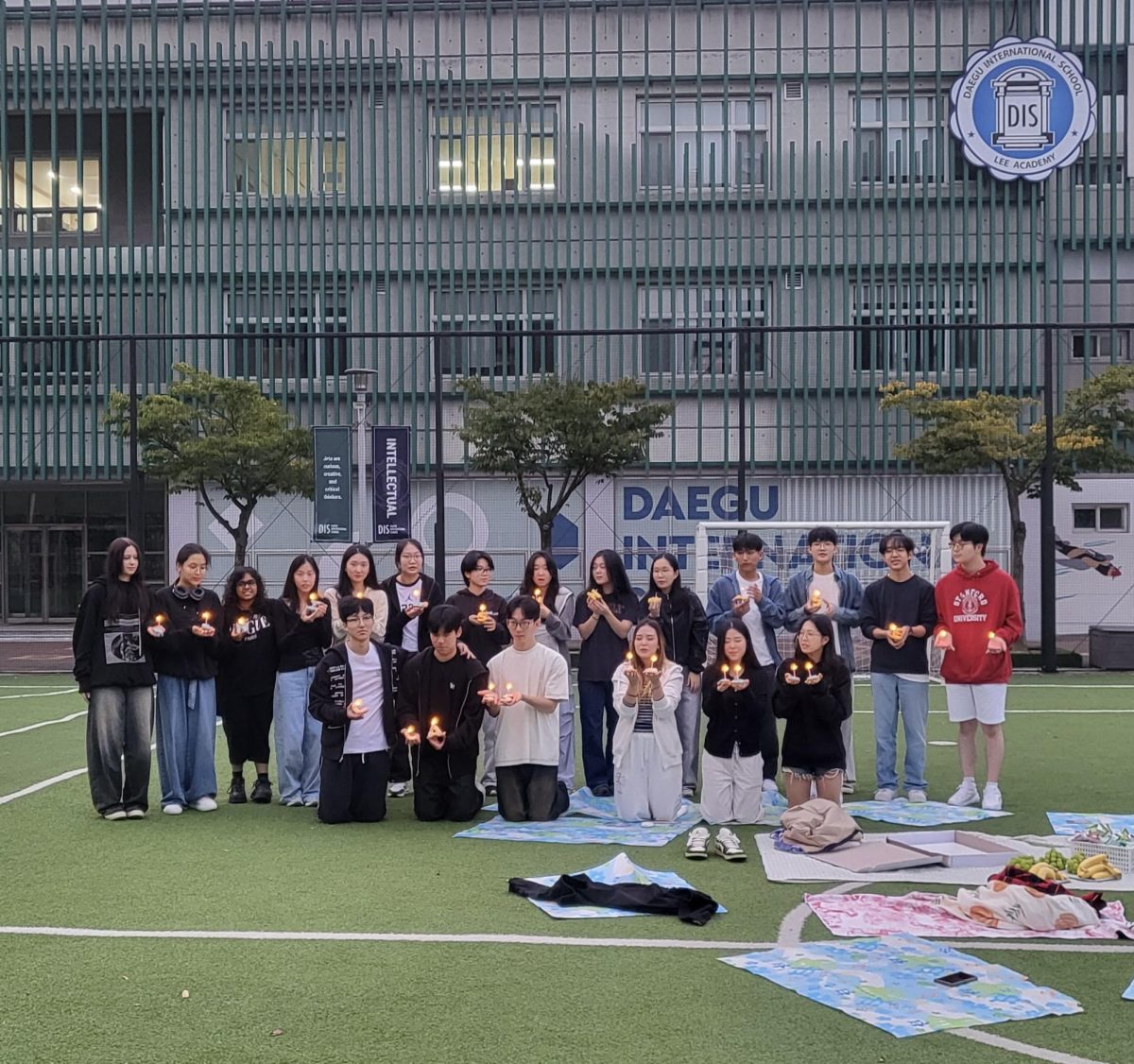











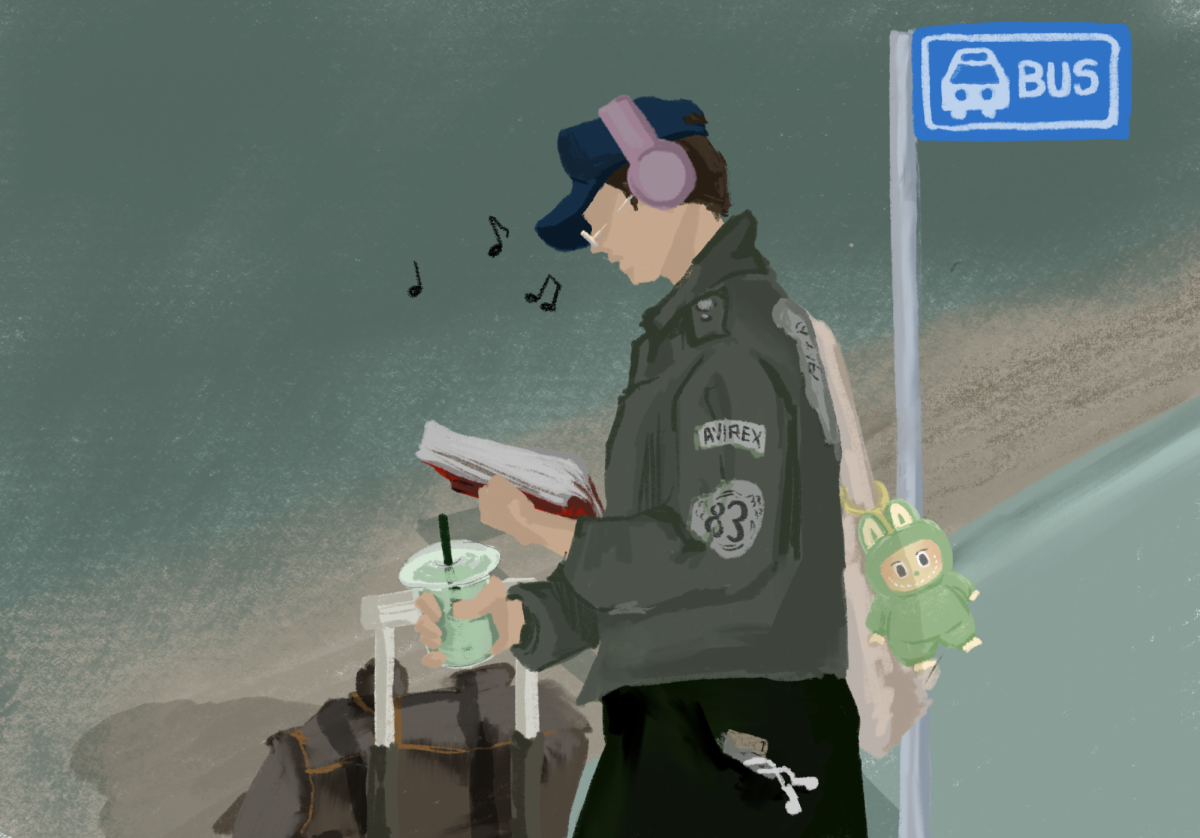
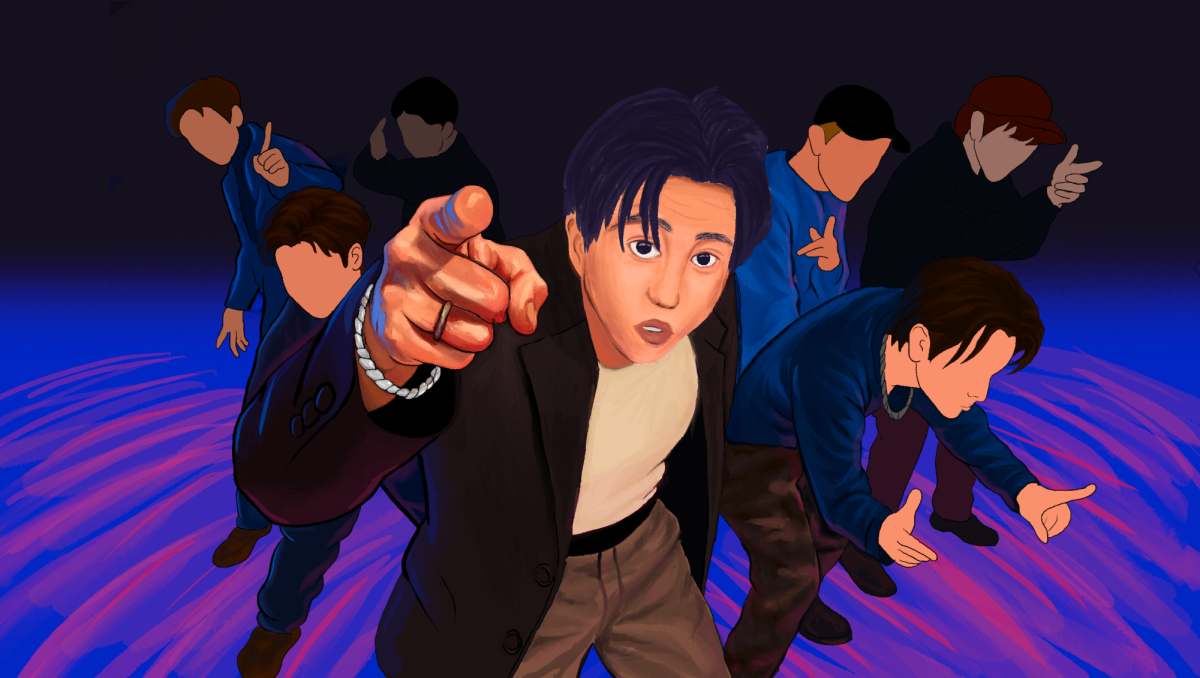



































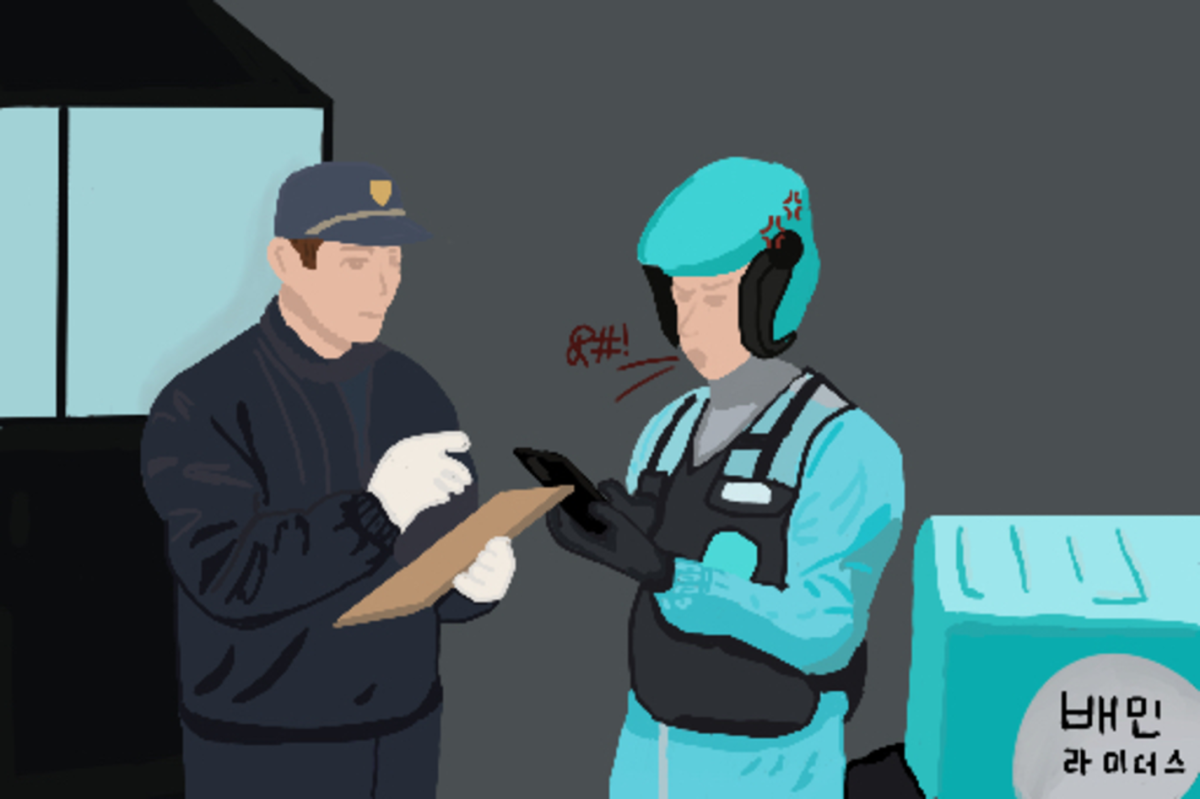


Sola • Dec 11, 2024 at 12:49 pm
Awesome article!!!!!